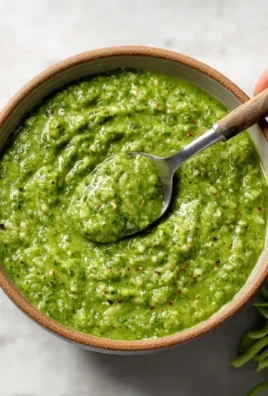
Grilled asparagus with lemon zest is a dish that perfectly captures the essence of fresh, seasonal cooking. It’s simple to prepare, bursting with bright flavors, and pairs beautifully with a variety of meals. In this guide, we’ll explore every detail you need to know to master this dish, from its historical significance and nutritional benefits to preparation techniques and tips for achieving grilling perfection.
The Historical Significance and Cultural Appeal of Asparagus
Asparagus has been cherished for centuries as a symbol of renewal and the arrival of spring. Its vibrant green color and tender texture make it a favorite ingredient in many cuisines around the world.
Historical Background
- Ancient Beginnings:
- Asparagus cultivation dates back over 2,000 years to ancient Egypt and the Mediterranean. Egyptians even included asparagus in their art, signifying its cultural importance.
- In ancient Rome, asparagus was highly prized. Roman emperors had specialized ships, known as the “Asparagus Fleet,” to transport fresh asparagus quickly to their tables.
- Renaissance Revival:
- Asparagus became a delicacy in European courts during the Renaissance. French kings referred to it as the “food of kings,” and it was often reserved for the elite.
- Global Spread:
- Asparagus was introduced to the Americas and Asia during the colonial period, where it thrived in temperate climates. Today, it is a globally celebrated vegetable.
Cultural Significance
Asparagus plays a starring role in many cultural traditions:
- Spring Festivals: In Europe, asparagus harvests are celebrated with festivals in Germany, France, and Italy, where dishes like grilled asparagus are served alongside local specialties.
- Symbol of Elegance: In fine dining, asparagus is often served as a luxurious side dish due to its association with sophistication and high-quality cuisine.
Nutritional Benefits of Asparagus
Asparagus is not only delicious but also packed with nutrients that support overall health. Here’s why it’s a nutritional powerhouse:
Key Nutrients
- Vitamins:
- Vitamin A: Supports healthy vision and immune function.
- Vitamin C: Acts as an antioxidant and boosts collagen production.
- Vitamin E: Promotes skin health and combats oxidative stress.
- Vitamin K: Essential for bone health and blood clotting.
- Minerals:
- Potassium: Helps regulate blood pressure and fluid balance.
- Folate: Crucial for DNA synthesis and repair, particularly for pregnant women.
- Iron: Supports oxygen transport in the blood.
- Fiber: Aids digestion and promotes gut health.
Health Benefits
- Detoxification:
Asparagus contains glutathione, a powerful antioxidant that helps detoxify the body and protect cells from damage. - Anti-Inflammatory Properties:
The vegetable’s high content of saponins and flavonoids reduces inflammation in the body, which is linked to chronic diseases. - Digestive Health:
Asparagus is rich in prebiotics, which feed beneficial gut bacteria and improve digestion. - Low in Calories:
At only 20 calories per cup, asparagus is a guilt-free addition to any meal.
Selecting and Preparing Asparagus for Grilling
The quality of the asparagus plays a major role in the success of this dish. Follow these steps to choose and prepare asparagus like a pro.
Selecting Fresh Asparagus
- Color: Look for spears that are bright green with tightly closed tips. Avoid stalks that are limp, dry, or yellowing.
- Size: Medium-thick spears are ideal for grilling. Thin spears cook too quickly and may char, while very thick spears can be woody.
- Smell: Fresh asparagus has a clean, grassy aroma. If it smells musty or sour, it’s past its prime.
Storing Asparagus
- Trim the ends of the stalks and store them upright in a jar with a small amount of water, covering them loosely with a plastic bag. This keeps the asparagus fresh for up to 5 days.
Preparing Asparagus
- Trimming the Stalks:
- Snap off the woody ends by bending the stalk near the base until it naturally breaks. Alternatively, use a knife to cut off about 1–2 inches from the bottom.
- Washing:
- Rinse the asparagus under cold running water to remove any dirt or sand. Pat them dry with a clean kitchen towel to ensure they grill evenly.
- Marinating:
- Toss the asparagus with olive oil, salt, and pepper. For added flavor, include minced garlic, lemon zest, or a pinch of chili flakes. Allow the asparagus to marinate for 10–15 minutes before grilling.
Tools and Equipment for Grilling
Grilling asparagus requires minimal equipment, but having the right tools makes the process easier and more efficient:
Essential Tools
- Grill or Grill Pan:
- A gas or charcoal grill imparts a smoky flavor, while a grill pan is perfect for indoor cooking.
- Tongs:
- Use long tongs to handle the spears safely and prevent them from falling through the grates.
- Basting Brush:
- Useful for applying marinades or extra olive oil during grilling.
- Zester:
- A microplane zester is ideal for adding fresh lemon zest as a finishing touch.
Grilling Techniques for Asparagus
Grilling asparagus brings out its natural sweetness while adding a smoky, charred flavor. Here’s how to achieve perfect results every time:
1. Preheat the Grill
- Set the grill to medium-high heat. This ensures the asparagus cooks quickly without becoming over-charred.
2. Place the Asparagus on the Grill
- Arrange the spears perpendicular to the grill grates to prevent them from falling through. Alternatively, thread the spears onto skewers or use a grill basket for easier handling.
3. Monitor the Cooking Time
- Grill the asparagus for 3–4 minutes per side, turning occasionally. Look for bright green spears with light char marks.
4. Finish with Lemon Zest
- Once the asparagus is off the grill, immediately sprinkle it with freshly grated lemon zest and a squeeze of lemon juice. This enhances the dish’s brightness and complements the smoky flavor.
Grilled asparagus with lemon zest is not just a side dish—it’s a versatile addition to a variety of meals. It pairs well with proteins, grains, and other vegetables, offers significant health benefits, and can easily be customized for any occasion. This section explores pairing options, nutritional insights, and ways to avoid common mistakes, ensuring your grilled asparagus always turns out perfectly.
Pairing Suggestions for Grilled Asparagus
Grilled asparagus with lemon zest pairs beautifully with a wide range of dishes, from hearty meats to light vegetarian entrees. The bright citrus notes and smoky grill flavor complement a variety of cuisines.
1. Grilled or Roasted Proteins
Grilled asparagus naturally pairs with proteins that share a smoky or roasted flavor profile.
- Chicken: Grilled chicken breast, lemon-herb chicken thighs, or roast chicken.
- Tip: Use similar marinades for both the asparagus and chicken to create a cohesive flavor.
- Beef: Serve alongside steak, roast beef, or beef kebabs.
- Tip: A sprinkle of freshly ground black pepper on both the steak and asparagus enhances the pairing.
- Pork: Pair with pork tenderloin, chops, or ribs.
- Tip: Glaze the pork with a citrus-based sauce to echo the lemon in the asparagus.
- Seafood: The light, citrusy flavor of asparagus perfectly complements seafood.
- Options: Grilled salmon, seared scallops, shrimp skewers, or lobster tails.
- Tip: Drizzle extra lemon juice on both the seafood and asparagus for a bright, refreshing finish.
2. Vegetarian and Vegan Dishes
Grilled asparagus can be a star in vegetarian and vegan meals.
- Grain Bowls: Combine grilled asparagus with quinoa, farro, or couscous, adding roasted chickpeas and a tahini-lemon dressing.
- Pasta: Toss asparagus with fettuccine, olive oil, cherry tomatoes, and a sprinkle of Parmesan.
- Stuffed Peppers: Use grilled asparagus as a filling alongside rice, beans, and herbs.
3. Breakfast and Brunch Pairings
Grilled asparagus is a fantastic addition to breakfast and brunch spreads.
- Eggs: Serve with poached eggs, scrambled eggs, or in an omelet.
- Avocado Toast: Place asparagus spears on avocado toast for an elegant touch.
- Frittata or Quiche: Incorporate grilled asparagus into a frittata or quiche with goat cheese and herbs.
4. Grain and Bread Pairings
For a complete meal, pair grilled asparagus with hearty grains or bread.
- Risotto: Lemon asparagus risotto is a classic combination that highlights the vegetable’s flavor.
- Pilaf: Pair asparagus with wild rice or bulgur wheat pilaf.
- Bread: Serve alongside garlic bread, crusty baguettes, or pita for a Mediterranean-inspired meal.
5. Salads
Grilled asparagus enhances salads with its smoky flavor and tender texture.
- Mixed Greens: Toss with arugula, spinach, or baby kale.
- Caprese: Layer with fresh mozzarella, basil, and tomatoes, drizzled with balsamic glaze.
- Warm Salad: Combine with roasted potatoes, red onions, and Dijon vinaigrette for a hearty option.
Nutritional Insights of Grilled Asparagus
Grilled asparagus with lemon zest is as healthy as it is delicious. Here’s a detailed look at its nutritional profile and health benefits:
Nutritional Breakdown (Per Serving: 1 Cup of Asparagus)
- Calories: 40
- Protein: 4g
- Carbohydrates: 4g
- Fiber: 2g
- Fat: 1g (from olive oil)
- Vitamin A: 15% of the daily value (DV)
- Vitamin C: 20% of the DV
- Vitamin K: 70% of the DV
- Folate: 15% of the DV
- Potassium: 270mg
Health Benefits
- Supports Bone Health:
- High levels of vitamin K in asparagus promote strong bones and aid calcium absorption.
- Boosts Immunity:
- Vitamin C and antioxidants in asparagus enhance immune function and reduce inflammation.
- Aids Digestion:
- The fiber content supports gut health by promoting regularity and feeding beneficial gut bacteria.
- Low in Calories:
- Asparagus is a great choice for weight management due to its low calorie and high nutrient density.
- Heart Health:
- Potassium helps regulate blood pressure, while antioxidants support cardiovascular health.
Common Mistakes to Avoid
Even a simple dish like grilled asparagus can go wrong if certain pitfalls aren’t addressed. Here’s how to avoid common mistakes:
Mistake 1: Overcooking the Asparagus
Problem: Overcooking results in limp, mushy spears.
Solution: Grill asparagus for 3–4 minutes per side until tender-crisp with slight char marks.
Mistake 2: Skipping the Preheat Step
Problem: Placing asparagus on a cold grill prevents proper charring and may lead to sticking.
Solution: Always preheat the grill to medium-high heat before adding the asparagus.
Mistake 3: Using Unevenly Sized Spears
Problem: Spears of different sizes cook unevenly, leading to some being undercooked and others overcooked.
Solution: Select asparagus of similar thickness for uniform grilling.
Mistake 4: Overloading the Grill
Problem: Crowding the grill prevents even cooking and proper caramelization.
Solution: Grill the asparagus in batches if necessary, ensuring enough space between the spears.
Mistake 5: Neglecting to Dry the Asparagus
Problem: Wet asparagus doesn’t sear properly and can become soggy.
Solution: Pat the asparagus completely dry after washing to ensure even grilling.
Mistake 6: Forgetting to Season Properly
Problem: Bland asparagus lacks flavor and appeal.
Solution: Season generously with olive oil, salt, pepper, and additional spices like garlic powder or chili flakes.




Leave a Comment